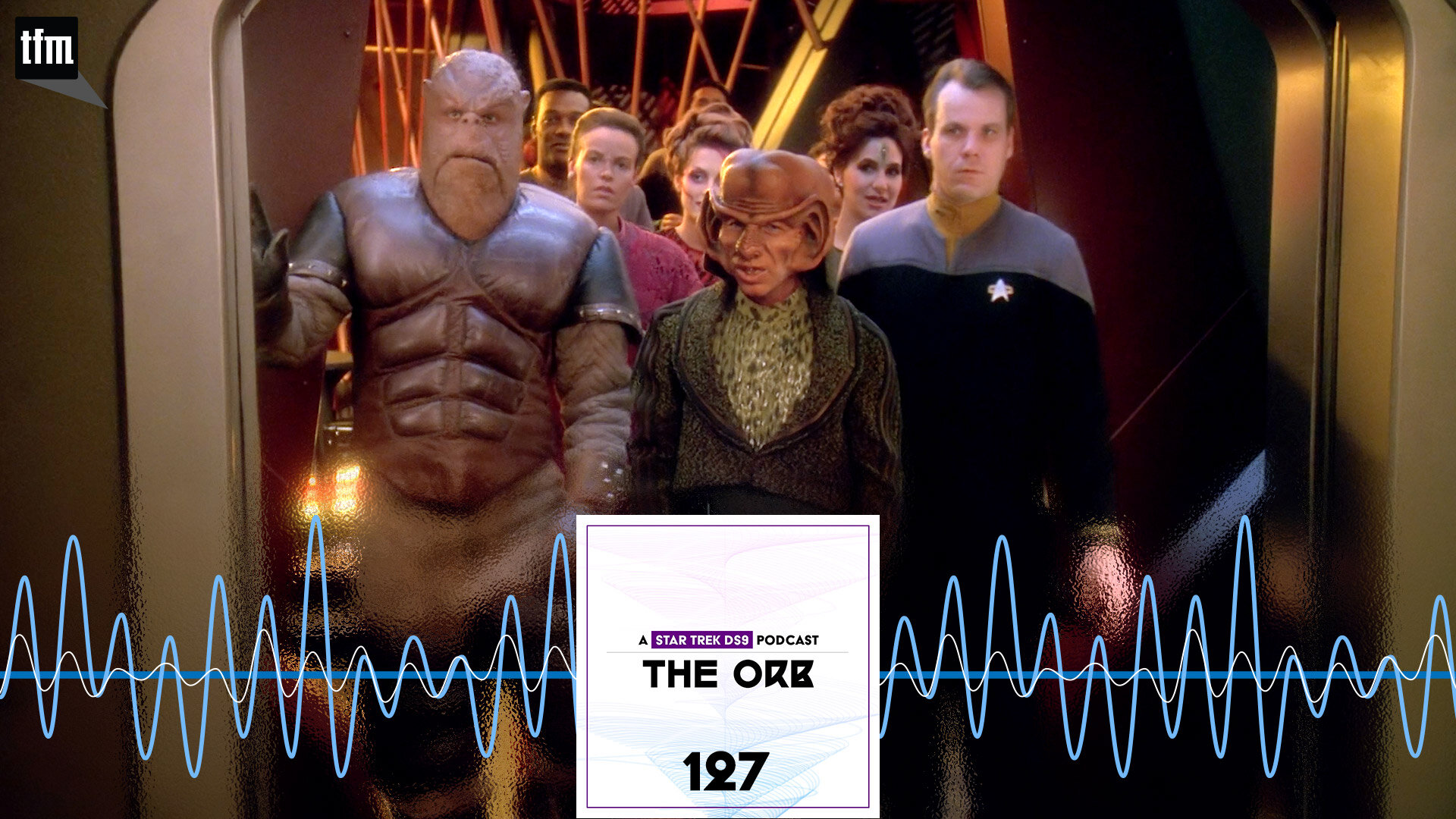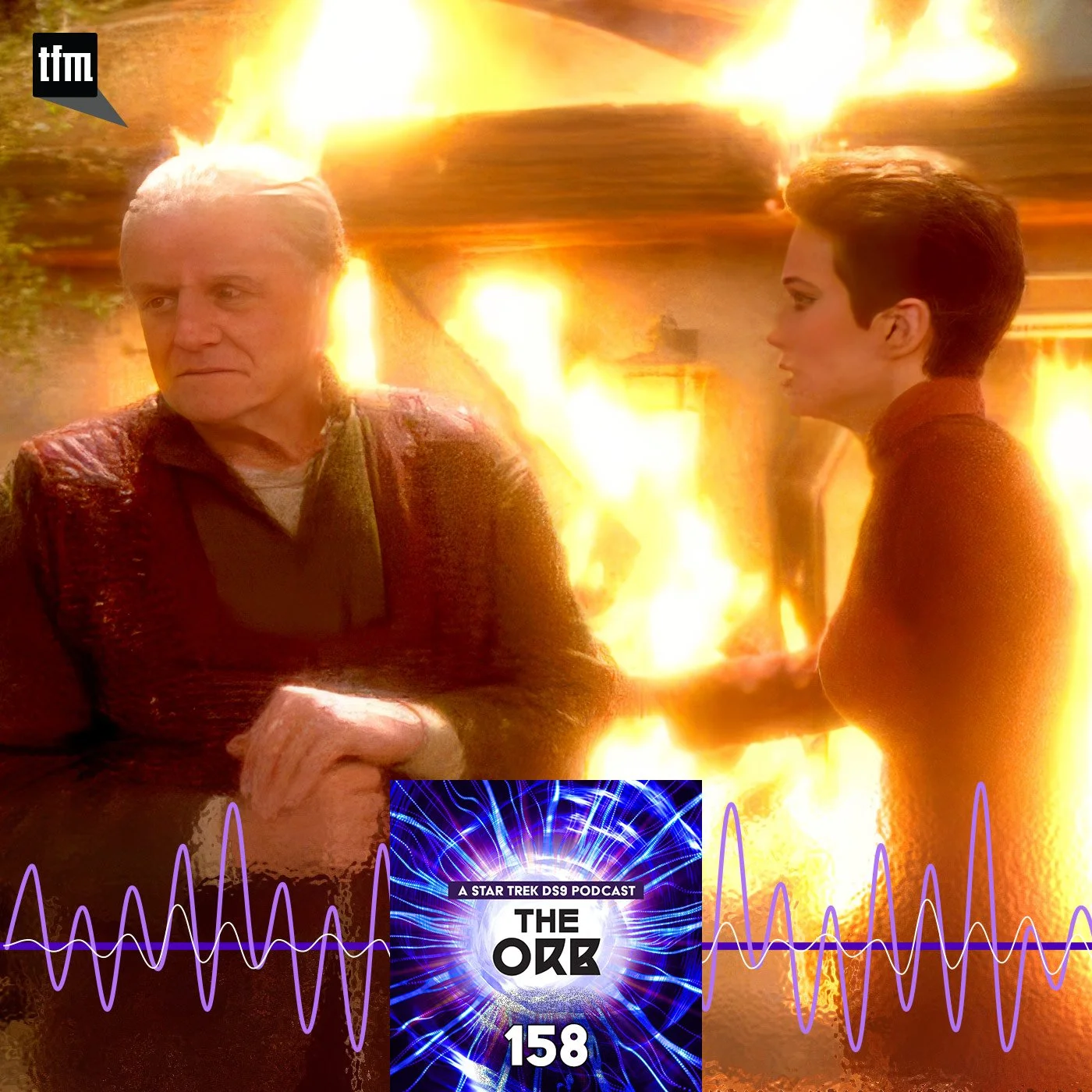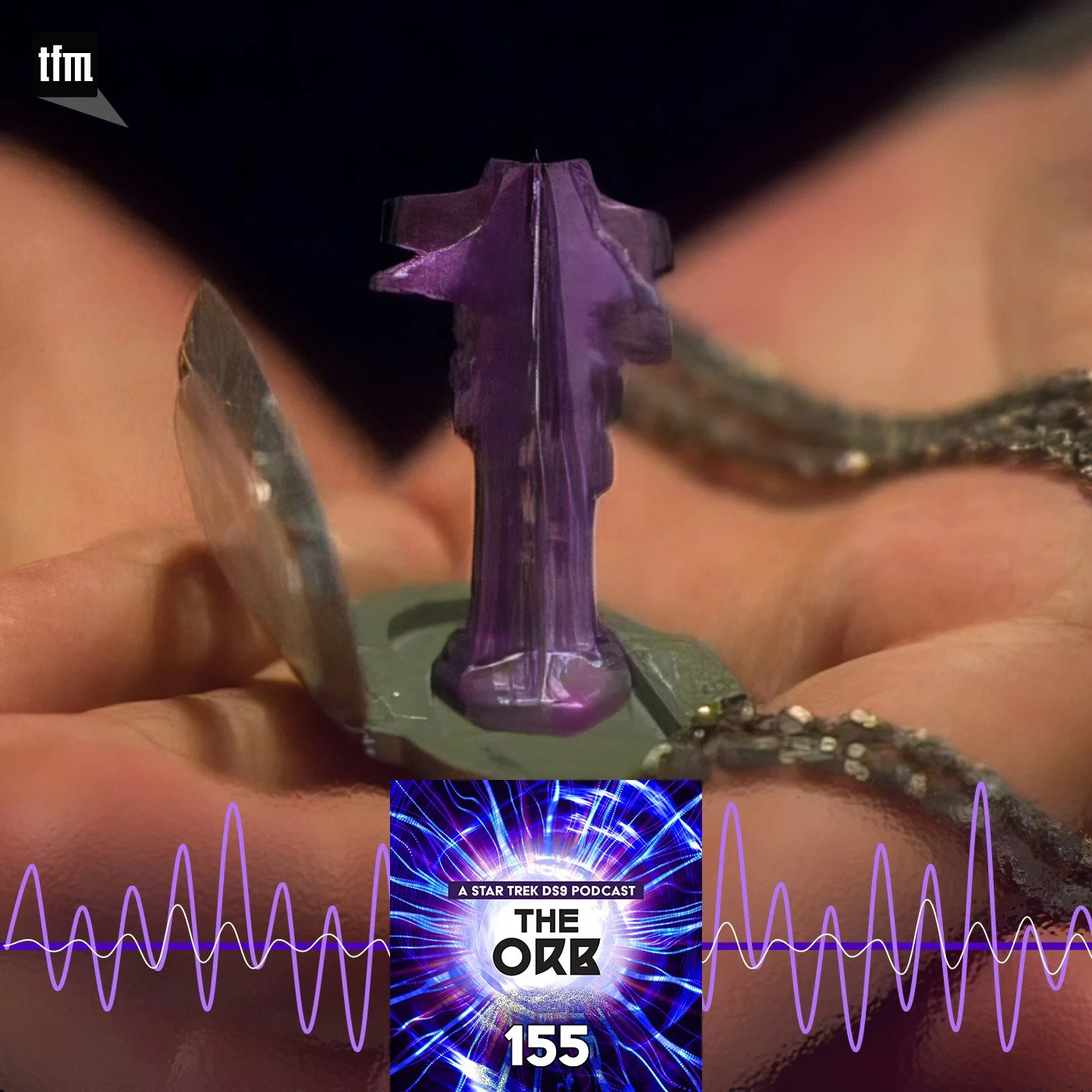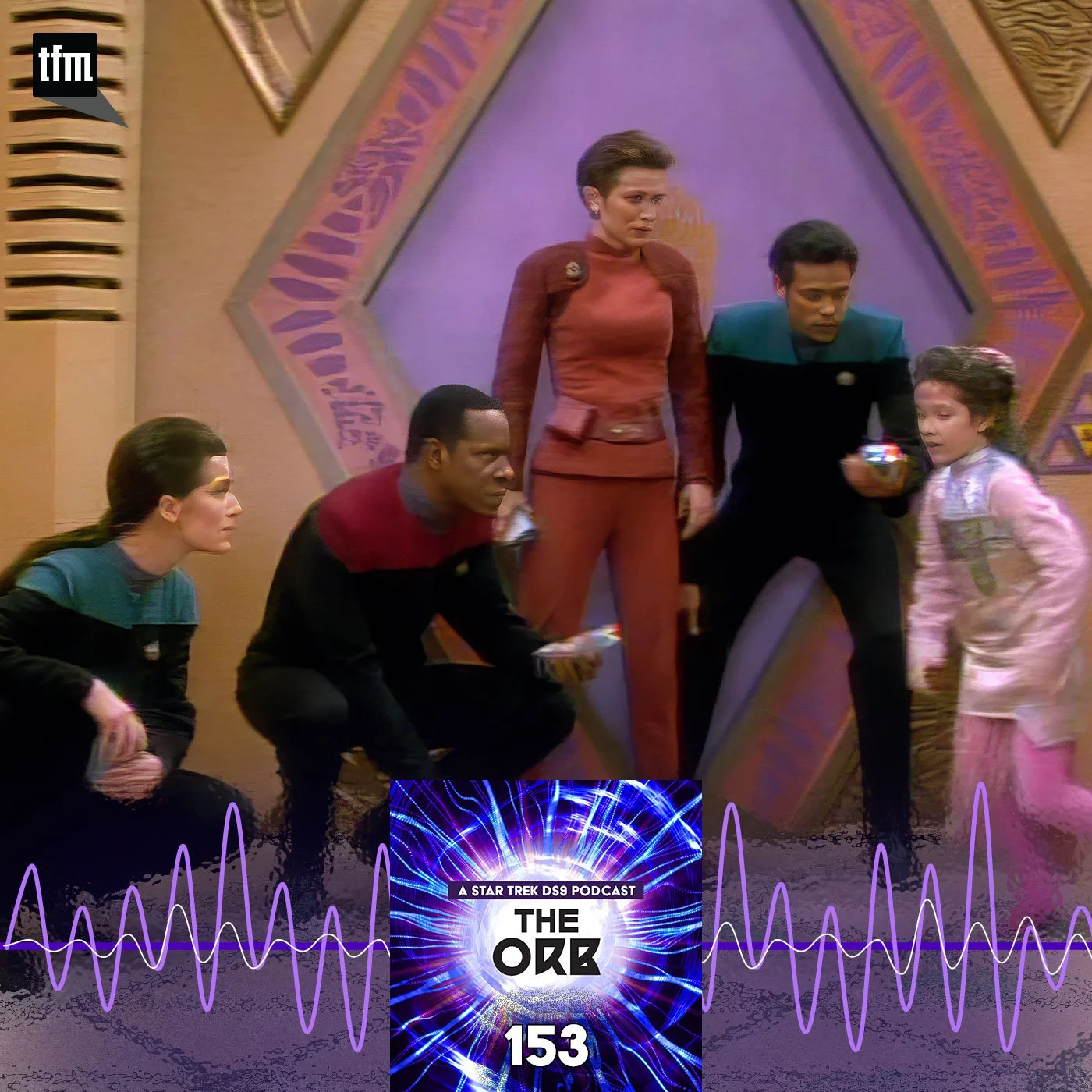Why DS9 endures.

Running Time: 52 minutes 49 seconds
Download / RSS / Send us a message / Discuss the show / Support Trek.fm
Almost three decades after it first aired, Star Trek: Deep Space Nine continues to be loved by its fans and welcomes first-time viewers every day. What is it about this series that was once cast into the shadows while its sister series basked in the limelight that connects so well with today’s audience?
In this episode of The Orb, hosts C Bryan Jones and Matthew Rushing get together for a casual discussion about the reasons they love DS9 and why they never tire of rewatching the series. Among the topics we touch on are how the setting challenges the residents of the station to embrace diversity and find common ground in a way that no other Star Trek series does, and why it all works because of the show’s focus on character over plot.
Chapters
Intro (00:00:00)
Plot Exists Only for Character (00:03:16)
Room to Breathe (00:13:15)
More Like Real Life (00:19:01)
Universal Messages (00:21:03)
Why Character Matters (00:25:39)
Living with People Who Are Different (00:30:32)
Free Speech and Finding Common Ground (00:38:49)
Closing (00:45:28)
Hosts
C Bryan Jones and Matthew Rushing
Production
C Bryan Jones (Editor and Producer) Matthew Rushing (Executive Producer) Norman C. Lao (Associate Producer)
“The Forsaken” 30th-anniversary reflections. We discuss how the writers put a distinctly DS9 twist on a TNG premise to deliver masterful character development.
“If Wishes Were Horses” 30th-anniversary reflections. We discuss the story's fun veneer, the wealth of character and social commentary that lies beneath, and why Miles must be feeling like Lando Calrissian.
“Progress” 30th-anniversary reflections. We discuss how the story of a stubborn landowner continues Kira’s incredible character development and focuses the DS9 narrative on everyday people.
“The Storyteller” 30th-anniversary reflections. We discuss how a long-dismissed idea finally found a home on DS9, the search for Bajoran identity, and what the story has to say about the importance of fathers and the power of collective belief.
“Battle Lines” 30th-anniversary reflections. We discuss how Opaka’s new calling changes not only her life but also Kira’s, why it was necessary to remove Opaka from her role on Bajor, what the story says about conflict, punishment, and redemption, and more.
“Vortex” 30th-anniversary reflections. We discuss revelations about Odo's people and how the story sets up the Dominion and why it's important to always keep an extra glass around.
“The Nagus” 30th-anniversary reflections. We discuss the resetting the Ferengi, subtle morality, the importance of fathers, and more.
“Move Along Home” 30th-anniversary reflections. We discuss the Wadi, whether budget was really the problem, why the crew should have played more Legend of Zelda, and more. Shap 6!
“The Passenger” 30th-anniversary reflections. We discuss how it works as a Bashir story, the introduction of Primmin, the Odo connection, the original concept, and more.
“Dax” 30th-anniversary reflections. We discuss the complex matter of where the line between host and symbiont begins and ends, how the story helps build the mythos of the Trill, some potential inspiration from Argentine writer Jorge Luis Borges, and much more.










